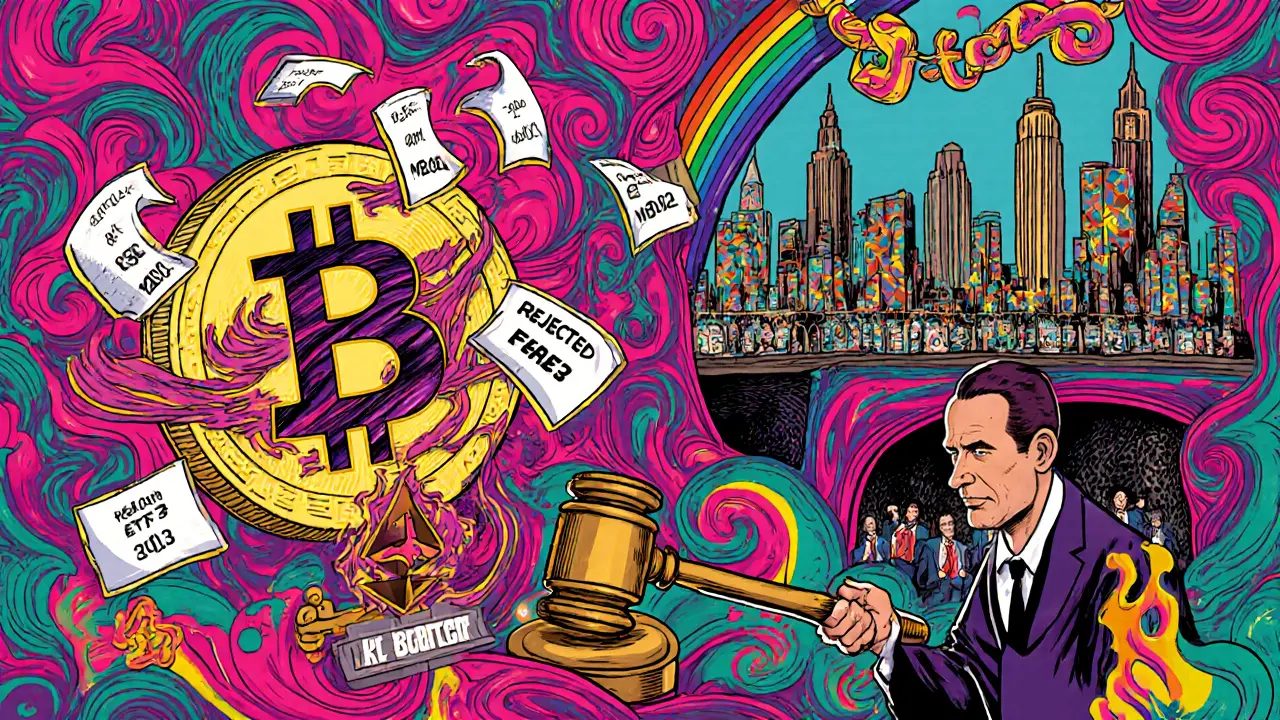Spot Bitcoin ETF: What It Is, Why It Matters, and How It’s Changing Crypto
When you hear spot Bitcoin ETF, a financial product that tracks the real-time price of Bitcoin and trades like a stock on major exchanges. Also known as Bitcoin exchange-traded fund, it lets you invest in Bitcoin without holding it yourself—no wallets, no private keys, no risk of losing access. This isn’t speculation. It’s a real product approved by the U.S. SEC in January 2024, and since then, over $20 billion has flowed into these funds. That’s more than most crypto projects have ever raised.
The institutional crypto, the wave of banks, pension funds, and asset managers entering the crypto space through regulated products is what made this possible. Before the spot Bitcoin ETF, big money stayed away because they couldn’t custody Bitcoin directly or meet compliance rules. Now, Fidelity, BlackRock, and Ark Invest offer these funds through traditional brokerage accounts. You don’t need to be a crypto expert—you just need a Robinhood or Schwab login.
This shift changed the whole game. The crypto regulation, the legal and compliance framework governing how digital assets are traded, taxed, and reported is now built around transparency. The SEC didn’t approve these ETFs because Bitcoin is safe—it approved them because the market is mature enough to prevent fraud and manipulation. That’s why you’ll see posts here about MiCA in Europe, OFAC sanctions, and AML rules for crypto businesses. Those aren’t distractions—they’re the reason the spot Bitcoin ETF exists. Without global compliance standards, regulators would never have allowed it.
And it’s not just about buying Bitcoin. The spot Bitcoin ETF is a gateway. Once you’re comfortable with a regulated crypto product, you start asking: What else is out there? That’s why you’ll find posts on tokenized Treasuries, real-world asset tokenization, and even crypto exchanges that are trying to compete with ETFs. It’s all connected. The ETF didn’t just open the door—it rewrote the rulebook.
But it’s not all smooth sailing. Countries like Qatar still ban Bitcoin outright. Some crypto tokens, like ELCASH or VATAN, have zero real use and are barely tradable. And while the ETF brings legitimacy, it also brings scrutiny. If you’re holding Bitcoin in a fund, you’re subject to the same tax rules as stocks. You can’t just ignore it.
What you’ll find below are posts that cut through the noise. We’ve got deep dives on how the ETF works under the hood, why some exchanges are struggling to keep up, and how real-world asset tokenization is now competing with Bitcoin for institutional attention. You’ll also see warnings about scams, dead tokens, and exchanges that are barely alive. This isn’t hype. It’s what happens when crypto goes mainstream—and the good, the bad, and the ugly come out.
Bitcoin and Ethereum ETF Approvals in the US: What Changed and What It Means for Investors
Bitcoin and Ethereum ETFs are now a reality in the U.S., transforming how investors access crypto. With SEC approvals in 2024 and in-kind trading added in 2025, these products offer regulated, tax-efficient exposure to digital assets. Here's what you need to know about fees, performance, and what's next.
